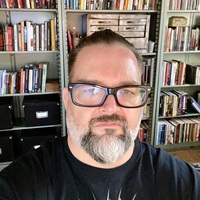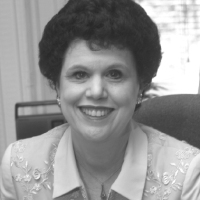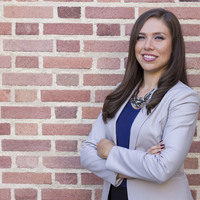
Needham Yancey Gulley
Dr. Yancey Gulley (he, him, his – pronouns) is an associate professor of Higher Education Student Affairs at Western Carolina University. He spent 15 years as a college administrator (primarily in the two-year college setting) prior to moving into a faculty role. Most of his administrative career was in the area of student affairs, having worked at several institutions around the country, including: Louisburg College, North Carolina State University, Long Beach City College, University of Georgia, and Athens Technical College. Dr. Gulley’s first tenure-track faculty appointment was at Morgan State University where he taught in the Community College Leadership doctoral program within the Department of Advanced Studies, Leadership, and Policy. He joined the faculty of the Higher Education Student Affairs program at Western Carolina University (WCU) in August of 2016 and the following year was asked to coordinate the Leadership Minor. Apart from teaching in these two areas, Dr. Gulley also teaches in the Educational Leadership doctoral program.
Dr. Gulley has a long history of advocating for social justice within the educational context through his scholarship, teaching, publications, presentations, trainings, and volunteer endeavors. Past research contributes to the scholarly conversation in higher education and student affairs leading to changes in the academy, including the opening of the lesbian, gay, bisexual, transgender, and queer (LGBTQ) Resource Center at North Carolina State University. In 2010, Dr. Gulley was named as a Grand Marshal of Atlanta Pride as part of the top 40 LGBTQ educators in Georgia. His first book was published in 2017; an edited volume entitled Using the CAS Professional Standards: Diverse Examples of Practice; the first book ever jointly published by NASPA, ACPA, & CAS. His largest research project to date focused on the nature of collaboration between academic and student affairs units in the community college setting. Currently, he is investigating the experiences of LGBTQ community college students, as well as the experiences of White faculty at Historically Black Colleges and Universities. Other projects include writing several book chapters on methodological and theoretical topics within higher education. He has presented his scholarship locally, regionally, nationally, and internationally and frequently collaborates with educators, scholars, and activists in and out of his field, even serves as an Associate Editor for the journal, Leisure Sciences. Dr. Gulley was honored by ACPA College Student Educators International by being named at 2019 Diamond Honoree for his contributions to the field of student affairs and the impact of his research, teaching, and service on student development.
When not focused on the growth and development of students, he enjoys spending time with his husband, Corey, and Frenchie, Sedgwick. His interests beyond the academy include: travel, literature, theatre, and a good patio or warm fire pit.
Dr. Gulley has a long history of advocating for social justice within the educational context through his scholarship, teaching, publications, presentations, trainings, and volunteer endeavors. Past research contributes to the scholarly conversation in higher education and student affairs leading to changes in the academy, including the opening of the lesbian, gay, bisexual, transgender, and queer (LGBTQ) Resource Center at North Carolina State University. In 2010, Dr. Gulley was named as a Grand Marshal of Atlanta Pride as part of the top 40 LGBTQ educators in Georgia. His first book was published in 2017; an edited volume entitled Using the CAS Professional Standards: Diverse Examples of Practice; the first book ever jointly published by NASPA, ACPA, & CAS. His largest research project to date focused on the nature of collaboration between academic and student affairs units in the community college setting. Currently, he is investigating the experiences of LGBTQ community college students, as well as the experiences of White faculty at Historically Black Colleges and Universities. Other projects include writing several book chapters on methodological and theoretical topics within higher education. He has presented his scholarship locally, regionally, nationally, and internationally and frequently collaborates with educators, scholars, and activists in and out of his field, even serves as an Associate Editor for the journal, Leisure Sciences. Dr. Gulley was honored by ACPA College Student Educators International by being named at 2019 Diamond Honoree for his contributions to the field of student affairs and the impact of his research, teaching, and service on student development.
When not focused on the growth and development of students, he enjoys spending time with his husband, Corey, and Frenchie, Sedgwick. His interests beyond the academy include: travel, literature, theatre, and a good patio or warm fire pit.
less
Related Authors
Travis Linnemann
Kansas State University
Andreas Umland
National University of "Kyiv-Mohyla Academy"
Linda Serra Hagedorn
Iowa State University
David Seamon
Kansas State University
Monica Marquina
CONICET
Armando Marques-Guedes
UNL - New University of Lisbon
John Sutton
Macquarie University
DAVE HOLMES
University of Ottawa | Université d'Ottawa
İlker Kayabaş
Anadolu University
Cynthia Alcantar
Loyola Marymount University
InterestsView All (7)










Uploads
Journal Articles by Needham Yancey Gulley
setting, this article offers a definition for academic and student affairs collaboration that has been absent from most literature on the topic.
Book Chapters by Needham Yancey Gulley
In our writing, we tend to capitalize Queer to respect the spectrum of sexual orientations and gender identities it is considered to include in the ebb and flow of sex, sexual, and gender differences. As you engage in what we hope will be a troubling trek through these chapters, we invite you to interrogate Queer oppression and disenfranchisement, as well as the exclusionary systems and traditions that sustain them. More importantly though, in the spirit of Paulo Freire s (2004) politics and pedagogy of indignation, we invite you to be open to being angry. We want you to use your anger, as Freire did, as a motivation for taking a stand and working for change. We want you to believe and insist that change is possible for Queers so we are respected, recognized, accepted, and accommodated (Grace & Wells, 2007). With delight, we introduce you to the chapters in this book as you begin your learning journey to enhance the motivation to know.
Conference Presentations by Needham Yancey Gulley
This session explores the intersections of leisure volunteering, personal/professional risk, and cultural difference. We critically examine the benefits and risks involved with volunteering in anti-hegemonic settings. Working in such settings from a volunteer perspective can impact our social standing, careers, livelihoods, reputations, and relationships. This presentation is based on research conducted on the experiences and perceptions of volunteers working with a non-profit, HIV-focused, queer organizations raising money and awareness primarily through drag performance, located in a predominately conservative region of the United States. By interviewing current and past volunteers, we formulate stories of real life consequences, both good and bad, of this particular form of leisure. We also discuss the reasons participants continue to volunteer and manage the consequences they face by engaging in this risky form of volunteerism and activism. For this study, we employ queer theoretical lens undergirded by current literature on serious leisure volunteering (Lockstone-Binney, Holmes, Smith, Baum, 2010; Stebbins, 2009). This study furthers the questions posed by Stebbins (2009) in Would You Volunteer, where he inquires as to the implication of volunteering on social capital. We extend his ideas of volunteering by focusing on the social location of the volunteer experience, as illustrated and theorized around the data. Overall, this study opens up space for a discussion of the influence of social capitol on volunteering and provides avenues for addressing the risk associated with activism.
setting, this article offers a definition for academic and student affairs collaboration that has been absent from most literature on the topic.
In our writing, we tend to capitalize Queer to respect the spectrum of sexual orientations and gender identities it is considered to include in the ebb and flow of sex, sexual, and gender differences. As you engage in what we hope will be a troubling trek through these chapters, we invite you to interrogate Queer oppression and disenfranchisement, as well as the exclusionary systems and traditions that sustain them. More importantly though, in the spirit of Paulo Freire s (2004) politics and pedagogy of indignation, we invite you to be open to being angry. We want you to use your anger, as Freire did, as a motivation for taking a stand and working for change. We want you to believe and insist that change is possible for Queers so we are respected, recognized, accepted, and accommodated (Grace & Wells, 2007). With delight, we introduce you to the chapters in this book as you begin your learning journey to enhance the motivation to know.
This session explores the intersections of leisure volunteering, personal/professional risk, and cultural difference. We critically examine the benefits and risks involved with volunteering in anti-hegemonic settings. Working in such settings from a volunteer perspective can impact our social standing, careers, livelihoods, reputations, and relationships. This presentation is based on research conducted on the experiences and perceptions of volunteers working with a non-profit, HIV-focused, queer organizations raising money and awareness primarily through drag performance, located in a predominately conservative region of the United States. By interviewing current and past volunteers, we formulate stories of real life consequences, both good and bad, of this particular form of leisure. We also discuss the reasons participants continue to volunteer and manage the consequences they face by engaging in this risky form of volunteerism and activism. For this study, we employ queer theoretical lens undergirded by current literature on serious leisure volunteering (Lockstone-Binney, Holmes, Smith, Baum, 2010; Stebbins, 2009). This study furthers the questions posed by Stebbins (2009) in Would You Volunteer, where he inquires as to the implication of volunteering on social capital. We extend his ideas of volunteering by focusing on the social location of the volunteer experience, as illustrated and theorized around the data. Overall, this study opens up space for a discussion of the influence of social capitol on volunteering and provides avenues for addressing the risk associated with activism.
This book details the philosophical underpinnings, design features and implementation strategies of Collective Memory Work – a methodology frequently employed by social justice activists/scholars. Collective Memory Work can provide scholars with unique and nuanced ways to solve problems for and with their participants.
Most importantly, the chapters also detail projects and social justice in action, analysing their participants’ real stories and experiences: projects that focus on LGBTQ youth, #blacklivesmatter activists, white faculty working at historically Black colleges and universities, men’s media consumption and much more. Written in an engaging and accessible style, readers will come to understand the potential of their own qualitative research using Collective Memory Work.
Written by student affairs faculty and practitioners, the book details how the CAS approach can be used successfully to design new programs, develop learning outcomes, address organizational challenges, conduct program reviews, and compile and report on findings. The authors offer diverse perspectives on how to apply the CAS standards and support efforts to promote assessment and effectiveness, benefitting both the division of student affairs and the whole institution by contributing to a culture of accountability and continuous improvement.
The book also expertly illustrates the many ways in which to utilize the CAS standards beyond program reviews. Chapters explore how to use the standards to inform the development of new programs and services as well as how to assess and benchmark existing ones. In addition, a chapter is devoted to adapting the standards and guidelines to address unique functional areas not addressed by CAS.
Using the CAS Professional Standards is a must-have companion guide to the CAS standards. The guidance offered by the case studies and commentary is indispensable for higher education leaders who are considering adopting the standards or who seek to take their practice to the next level.
On this episode of Student Affairs Live, host Heather Shea extends the conversation beyond the basics of CAS to discuss and how student affairs educators might employ these foundational standards within various student affairs functional areas to improve practice. Joining Heather are editors and chapter authors, Dr. Laura Dean, Dr. Shannon Dean, Dr. Yancey Gulley, Alex Lange, and Dr. Jen Wells.